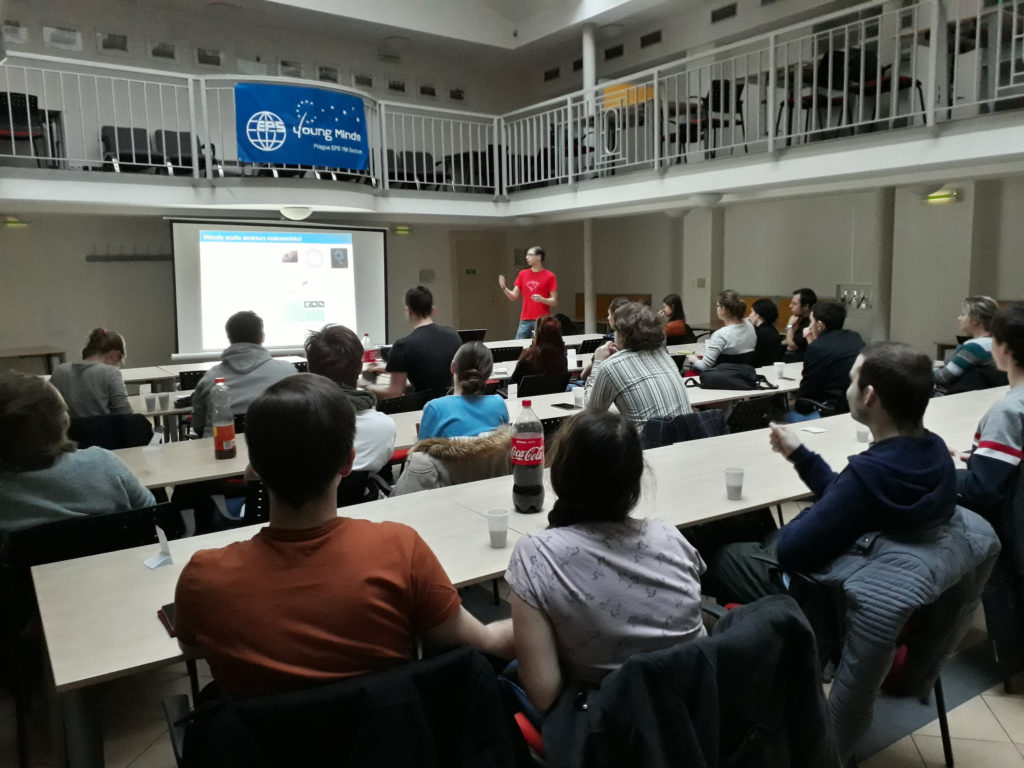One of the main goals of EPS Young Minds project is to connect young scientists from different physics fields. We have therefore decided to organize students’ colloquiums called Physics Pizza Party: students 4 students (PPP), where young scientists from our and other universities presented their research activities in an informal manner. After the success of these colloquiums in the previous semesters, PPP has shown to be a successful concept also in this summer semester of 2018.
Totally, three PPP events were organized this semester, where different physics fields were presented by students from Faculty of Mathematics and Physics and Faculty of Science of the Charles University and by students from the FNSPE CTU in Prague. Students’ research talks presented topics such as determination of protein structure, atomic force microscopy or search for the life in the solar system. The last colloquium was organized in the collaboration with The Union of Czech Mathematicians and Physicists.
Majority of invited speakers have not experienced before presenting their research activities in front of the audience which was unfamiliar with the topic. Despite this fact, each talk was perfectly prepared, and therefore there was no problem to understand the given topic. These events were scheduled for 90 minutes each, with half of the time dedicated to the presentation and another half to the discussion, but due to participants’ interest and their questions, in the end, the colloquiums took even more time – around 2 hours. According to the speakers, it was a very rewarding experience for them.
Advertisement of the events was made in form of posters placed in the buildings of FMP CU and FNSPE CTU. To catch the interest of as many participants as possible, these colloquiums were also promoted through social networks such as Facebook and Instagram. Due to the promotion, which aroused high interest for the PPP events, the average number of participants was around 30 students per one colloquium.
The Prague EPS Young Minds Section found these colloquiums rewarding since the “students for students” style of presentations is still very rare in our country and we were one of the first who organized this kind of meetings. According to the feedback from our participants, we concluded that our colloquiums were successful since they were very positively rated. Thanks to this positive feedback and the high number of attendees, we would like to continue with this activity during the upcoming academic year.

